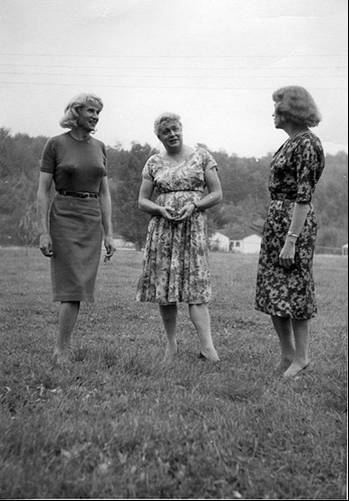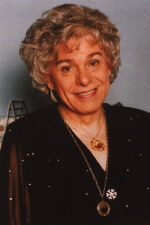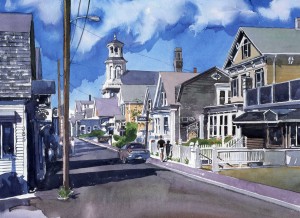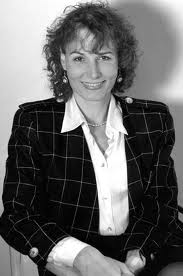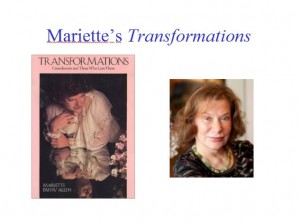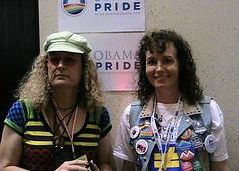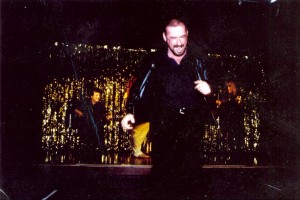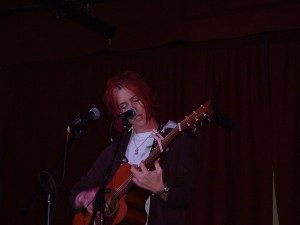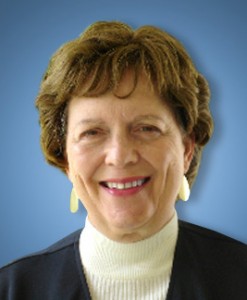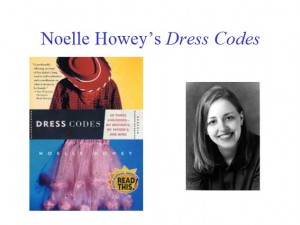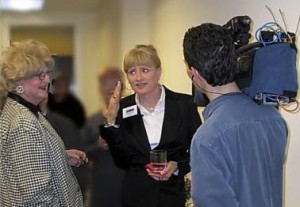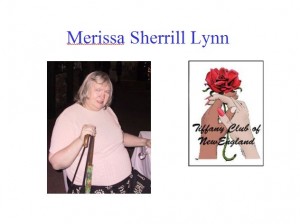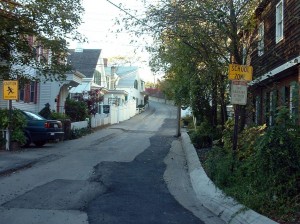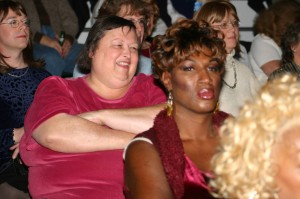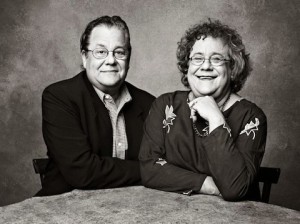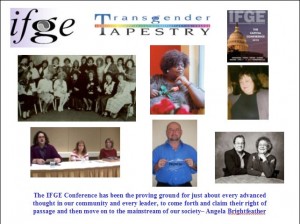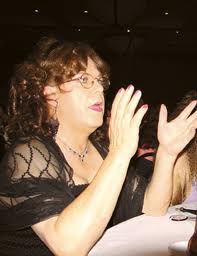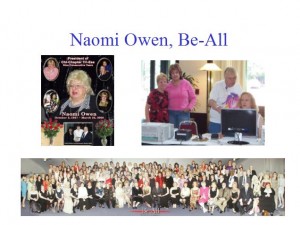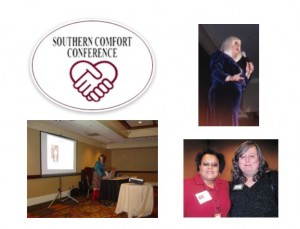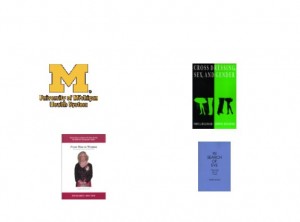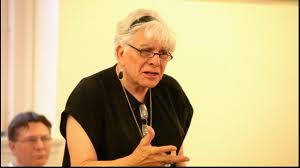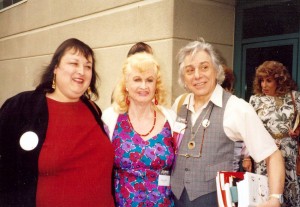The Mother of All Transgender Events (2010)

©2010, 2013 by Dallas Denny
Source: Dallas Denny. (2010, 19 October). The mother of all transgender events. Keynote presentation at Fantasia Fair, Provincetown, MA.
Fantasia Fair, a week-long annual transgender event held in Provincetown, MA, has been called The Mother of All Transgender Events. It has been running since 1975. This is my keynote presentation from 2010.
The Mother of All Transgender Events
Keynote for Fantasia Fair 2010
Notes and Slides for Presentation
By Dallas Denny
Beginning in the 1950s, small groups of crossdressers on the east and west coasts were secretly meeting in living rooms and attending weekend get-togethers in the country.
In 1975, a group of crossdressers, many associated with the Cherrystones support group—Ariadne Kane included—came together to plan Fantasia Fair. The first Fair was in Provincetown in 1975.
At about the same time, there was a west coast conference called Dream. Little or nothing has been written about Dream.
The Fair was the first event in which crossdressers went openly in public. Previous weekends had been in retreats in the Poconos and Catskills. From the beginning, the Fair was of Provincetown, and Provincetown was of the Fair. Provincetown itself is an integral part of Fantasia Fair.
The Fair has long been a nexus for transgender energy. Over the past 35 years, thousands of crossdressers and transsexuals have found themselves at the Fair, and many have gone on to become leaders in the transgender community. In fact, because so many conferences, support groups, and books have their roots in Fantasia Fair, the Fair has been called The Mother of All Transgender Events.
Today I’d like to explore some of these connections. I invite anyone who knows of connections I don’t to please speak up. We’re still a bit cloudy about the early days of the Fair.
An important event for the Fair was an article by D. Keith Mano which appeared in Playboy magazine in November, 1980. The article, which appeared in a mass-produced national magazine, called Fantasia Fair to the attention of many transgendered people—and many of them found their way to the Fair. LINK!\
I remember reading the article; the magazine came out just before the Fair, and I desperately wanted to go—but I was young and had little money. The article stressed—repeatedly—how expensive Fantasia Fair was. I gave thought to just jumping in my old car and driving north, but I was afraid I would have a miserable, hungry time—and so I didn’t.
One young person who DID come because of that article was Vanessa Edwards Foster. With little in the way of resources, she drove across country from Texas to Massachusetts and was moved forward in her personal journey.
A photographer who has a long history with the Fair met Vanessa and included photos of her (she was identified with another name) in her book of photo essays.
That book, published in 1990, was called Transformations: Crossdressers and Those Who Love Them. The author was our own Mariette Pathy Allen, who is here today. Mariette took many of the photos in her book here in Provincetown. So oooh, here’s another link to Fantasia Fair. LINK!
Vanessa went on to co-found and become President of The National Transgender Advocacy Coalition. LINK! Of course, all the advocacy and political work she’s done can be claimed as links. For instance, she was a national level delegate to the Democratic Convention. LINK
Say, can we all say “link” whenever I mention something or someone for which the Fair was an important part of their early history? Just say Link! Let’s hear it! LINK! LINK!
It’s clear today that Vanessa is transsexual. Back then, identity was a bit of a murky business. It required going to doctors and have them tell you you were one.
In fact, the Fair has, for the last 20 years, at least, been an open event, with transsexuals and crossdressers socializing and learning together.
Another transsexual who came to the Fair was Christine Howey. Chris wasn’t sure WHAT she was, but the Fair helped her figure it out. She came away from the Fair with a growing sense of herself. Chris later co-wrote the musical The Sisssy Show with Katherine Harvey. And for that matter, Katherine got her own grounding at the Fair. LINK!
Chris’ daughter Noelle, who had written for magazines such as Mother Jones, Ms., and Mademoiselle, wrote a well-received memoir called Dress Codes, published in 2003, and later co-edited a book called Out of the Ordinary about GLBT parents! LINK! LINK!
Entrepreneur Rikki Swin is another attendee who was profoundly influenced by the Fair. She bought a bed and breakfast inn here in Provincetown, and went on to acquire a huge amount of the transgender community’s historical resources, which she promptly spirited away to British Columbia. LINK!
Considering the Fair’s proximity to Beantown, it’s not surprising it has been important in all things transgender in Boston. This woman is Merissa Sherrill Lynn. She founded the support group The Tiffany Club of New England, which is still in existence. LINK!
In the mid ’80s, here at the Fair, a group of Fair attendees, Boston activists, and others from across the U.S. met at a bed and breakfast on Winslow Street and thrashed out ideas for what was to eventually become The International Foundation for Gender Education—LINK!—and the Winslow Street Fund. LINK!
Guess who was once editor of IFGE’s Transgender Tapestry Journal? LINK!
And guess which Fantasia Fair director has long had a column in Tapestry? LINK!
IFGE has an annual conference.
In a 2008 comment on Monica Helms’ blog, Angela Brightfeather had this to say about it: “The IFGE Conference has been the proving ground for just about every advanced thought in our community and every leader, to come forth and claim their right of passage and then move on to the mainstream of our society.” LINK!
In the 1980s a frightened crossdresser was told by Ari Kane to come to Fair. She did. I’m talking, of course, about our own Alison Laing. She went on to co-found Pennsylvania’s Renaissance Education Association—LINK!—serve as Executive Director of IFGE—LINK!—Become Director of Fantasia Fair—LINK!—and write a popular book about voice. LINK!
Fair attendees from the Midwest—most notably Naomi Owen and Eve Burchert—were instrumental in the founding of the Be-All Conference.
In 1990, Sabrina Marcus went to the IFGE office and asked Merissa Sherrill Lynn to start a conference in the Southeast U.S. Merissa said no, IFGE wouldn’t do that, but IFGE representatives would come to Atlanta and show Southern groups how to do it for themselves. Merissa, Yvonne Cook-Riley, and other IFGE people were true to their word. Over a single weekend, representatives from 14 Southeast organizations, including two organizations I started, met and formed the steering committee for the conference that was to be called Southern Comfort. LINK!
The Southern Comfort conference has inspired several films, including Kate Davis’ 2001 namesake Southern Comfort, which won the Grand Jury Documentary Prize at Sundance. LINK!
Latvian director Rosa Von Praunheim did extensive filming at Southern Comfort for his 1996 film Transexual Menace. LINK!
Quite a few helping professionals have been influenced by the Fair during their early careers. Sexologist and historian Vern Bullough made a number of Fairs through the years. So did anthropologist Anne Bolin. Dr. Sandra Cole has been coming to the Fair for many years to talk about couples issues. I dare say the Fair informed the work of all these folks. LINK! And of course, there’s our own Miqqi Gilbert. LINK!
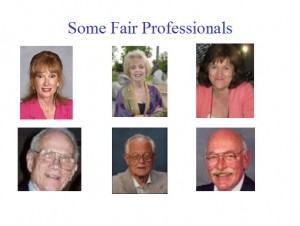
Top Row, LTR:
Anne Bolin, Sandra Cole, Maureen Osborne
Bottom:
Richard Docter, Vern Bullough, Bud Heuer
Fair professional Sandra Cole started a gender program at the University of Michigan. Vern and Bonnie Bullough wrote several books about trans issues. Richard Docter wrote three books. And Anne Bolin’s In Search of Eve was informed by her work with the community, including trips to the Fair. Neila Miller has attended the Fair for many years. LINK!
Boston’s Dr. Norman Spack came to the Fair as he was beginning to work with transgender teens. Coincidence? LINK!
Dr. Spack has taken abuse for his work, as he slide above attests.
Ariadne Kane and the late Betty Ann Lind are two individuals who were profoundly influenced by Fantasia Fair. Betty Ann was Fair Director for many years. Ari then became director. Ari founded the Outreach Institute, which published a most excellent journal, and set up Theseus Counseling, working with many transgendered people. LINK! LINK!
Sorry. I was unable to find a photo of Betty Ann Lind.
The late Virginia Prince attended many Fantasia Fairs. She was in the gender business long before the Fair was formed—she has been called the grandmother of all crossdressers—and no doubt her influence was in no small way important in the forming of Fantasia Fair—the mother of all transgender events, and perhaps Virginia’s adopted daughter. LINK!
I could give more examples—there are thousands, as few people who come to Fantasia Fair go away unaffected—but I think I’ll stop here. Clearly, the Fair has served as a starting point, a catalyst, a launching post for a great deal of transgender activity and a great many transgendered and transsexual people. I’d love to hear from audience members how they and others have been affected by this mother of all transgender events.

